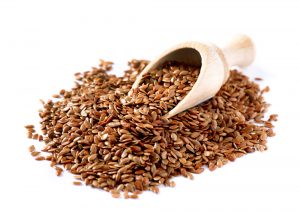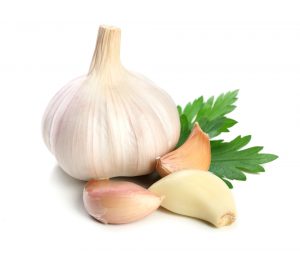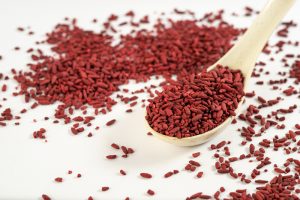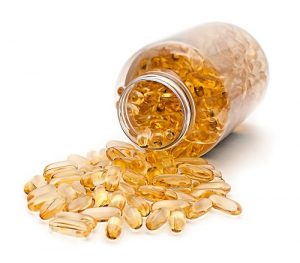
Healthy Heart
We look at the supplements to help maintain a healthy heart.
Cardiovascular disease remains one of the biggest health issues we’re facing as a nation and according to the NHS, is one of the main causes of death and disability in the UK.
It is often treated by different forms of medication, but there are some more natural solutions to help support your hearts health – you can use them in conjunction with your medication or take them as a preventative method, to keep your heart healthy and avoid disease from forming.
We’ve spoke to a number of experts to find out what they recommend for heart health:
Flax seeds
“They are an excellent source of soluble fibre which may help to maintain healthy cholesterol levels,” explains Jenny Bodenham, nutritionist at Higher Nature.
Try: Higher Nature’s Organic Cold Milled Flax Seed
Coenzyme Q10
“CoQ10 is required for cellular energy and is especially abundant in heart muscle, supporting optimal function of the heart muscle. The body’s own CoQ10 production diminishes with age and people on statin medications may have reduced levels of CoQ10 as statins not only lower cholesterol but also inhibit CoQ10 production,” explains Bodenham.
Frankie Brogan, senior nutritionist at Pharma Nord, also recommends CoQ10: “CoEnzyme Q10 is a substance that’s needed for energy production and is concentrated in hard working organs such as the heart and muscles. From its peak at age 21, the body’s q10 levels start to deplete and some medications (such as statins) cause further reduction. Low Q10 can show as tired muscles and a tired heart and recent studies show Q10 supplementation can raise Q10 levels and heavily reduce cardiovascular event risk.”
Try: Pharma Nord’s Bio-Quinone Q10
Selenium
To help support CoQ10, Brogan also recommends supplementing with selenium: “Selenium’s an important supplement also, considering that intakes or the trace mineral are considered low in the UK compared to other parts of the world. Selenium is needed for a wide range of biochemical functions including helping Q10 work and supporting heart health. Organically bound selenium-yeast products are supported by experts as the best on the market.”
Try: Pharma Nord’s Bio-SelenoPrecise
Garlic
“It may support healthy blood pressure and cholesterol levels and help to maintain healthy arteries,” recommends Bodenham.
Try: Higher Nature’s Supergar 8000 & Pharma Nord’s Bio-Garlic
Magnesium
“As well as looking after our cholesterol levels we should also ensure that our nervous system is working optimally because it is our nerves that help to keep our heart muscles contracting. Our heartbeat is part of the nervous system that controls our body unconsciously in areas such as breathing and blinking. Magnesium is a mineral that supports normal functioning of the nervous system and muscle contraction including heart muscle,” explains Nicola McCusker, nutritional therapist and nutrition advisor at Solgar.
Try: Pharma Nord’s Bio-Magnesium & Solgar’s Magnesium Citrate
Arginine
“It is needed by the body to make nitric oxide, a substance that allows blood vessels to dilate, helping support blood flow and bringing oxygen to the heart,” said Bodenham.
Try: Higher Nature’s Arginine
Red Yeast Rice
“Red yeast rice is a dietary staple in many Asian countries, where it is used to naturally colour various dishes. Its red colour is derived from fermentation of rice with a species of yeast, monascus purpureus. Red yeast rice may help to support healthy LDL cholesterol, total cholesterol, and triglyceride levels,” explains Bodenham.
Vitamin K2
“Another key heart supplement is vitamin K2 especially for those taking calcium supplements or who enjoy dairy. It helps protect the arteries from hardening (known as calcification) by activating various proteins. K2 helps ensure calcium is deposited into the bones, not the blood vessels which would otherwise contribute to negative cardiovascular events. MK-7 is considered in research as the ideal form of K2 and for good bioavailability, look for oil capsules forms,” recommends Brogan.
Try: Pharma Nord’s K-Peals
Lysine and vitamin C
“Lysine, along with vitamin C, is thought to help maintain smooth-walled arteries and healthy circulation,” explains Bodenham.
Try: Higher Nature’s Lysine
L-carnitine
“It provides energy for the heart, helping maintain normal healthy heart rhythms and contractions,” comments Bodenham.
Essential Fatty Acids
“Oily fish, nuts and seeds are a good source of omega-3 essential fatty acids, that may help support healthy arteries, blood pressure, blood flow, triglyceride and cholesterol levels,” said Bodenham.
Katherine Pardo, nutrition team manager for Nutri Advanced, agrees: “We’d always recommend an omega-3 fish oil – this is our top suggestion for supporting heart health! The omega-3 fatty acids EPA and DHA support normal heart function, including normal blood pressure and healthy triglyceride levels. We’d also suggest plant sterols, substances that occur naturally in plants, as these may support healthy cholesterol levels.”
Try: Higher Nature’s Omega 3 Fish Oil, Pharma Nord’s Bio-Fish Oil, Solgar’s Triple Strength Omega-3 and Nutri Advanced’s Eskimo-3.
Plant Sterols
“Naturally occurring in many foods including grains, vegetables, nuts, seeds and legumes and structurally similar to cholesterol, plant sterols help to maintain normal cholesterol levels, by competing with cholesterol for absorption,” said Bodenham.
McCusker agrees: “High cholesterol is a risk factor in the development of coronary heart disease. Dietary phytosterols work by interfering with the synthesis of cholesterol and have been shown to reduce blood cholesterol (the beneficial effect being obtained with a daily intake of 1.5-3 g plant stanols). These sterols are naturally occurring molecules that can be derived from plants, animals and fungi.”
Try: Solgar’s Phytosterol Complex and Nutri Advanced’s Sterol 117.
Folic acid, vitamins B12, B6 and B2, and tri-methyl glycine (TMG)
“These nutrients have been found to help maintain healthy homocysteine levels in the body. Raised levels of homocysteine have been associated with an increased risk of heart disease,” suggests Bodenham.